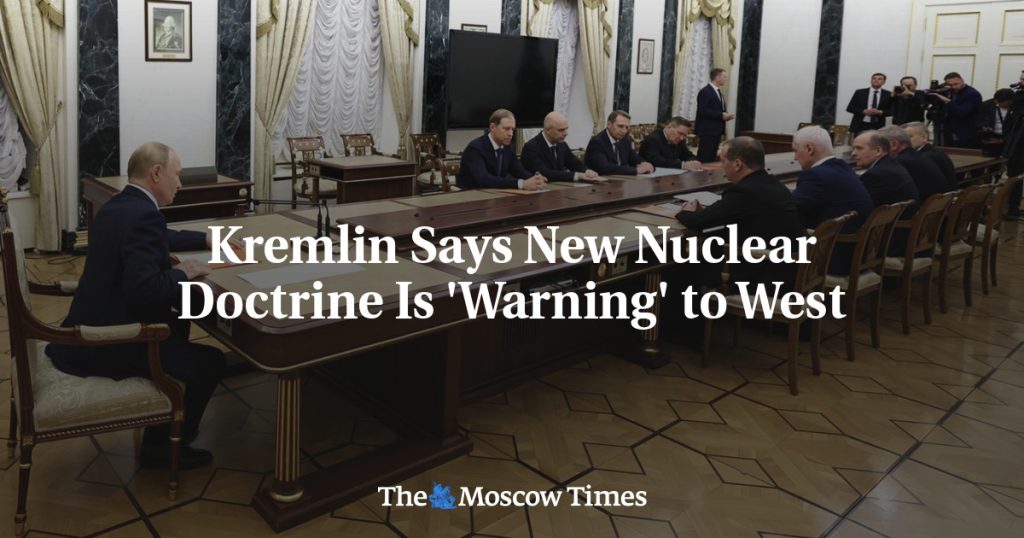The Kremlin recently announced plans to update Russia’s nuclear doctrine, allowing for the potential use of nuclear weapons against non-nuclear states as a response to a “massive” air attack. This move is seen as a warning to the West, especially in light of the ongoing tensions between Russia and Ukraine, as well as its Western backers. Kremlin spokesman Dmitry Peskov emphasized that these changes should be viewed as a specific signal to countries that may be considering participating in an attack on Russia by various means. The adjustments to Russia’s nuclear deterrence come amidst growing tensions along Russia’s borders, although Peskov clarified that there are no plans to increase Russia’s nuclear arsenal at this time.
The proposed changes to Russia’s nuclear doctrine, which require approval from President Vladimir Putin, coincide with Ukraine’s requests to use long-range precision weaponry to target Russian airfields and military infrastructure inside Russia. Despite these requests, Western allies have been hesitant to enable further escalation in the conflict. The West has accused Putin of engaging in irresponsible nuclear saber-rattling throughout the Ukraine war, with multiple threats issued about the deployment of nuclear weapons. This has raised concerns about the potential for further escalation and the impact it could have on global security.
The current situation reflects a deeper power struggle between Russia and the West, with Ukraine caught in the crossfire. Russia’s moves to update its nuclear doctrine are a clear signal of its perceived threats and concerns regarding its national security. The decision to potentially use nuclear weapons against non-nuclear states underscores the seriousness of the situation and the lengths to which Russia is willing to go to protect its interests. The Kremlin’s actions are likely intended to deter any potential attacks and prevent further escalation of the conflict in Ukraine.
The Kremlin’s nuclear doctrine update has raised alarms in the international community, with concerns about the implications of such a policy shift. The use of nuclear weapons against non-nuclear states is a significant departure from traditional nuclear deterrence strategies and could have far-reaching consequences. The possibility of nuclear escalation in a conflict involving non-nuclear states adds a new layer of complexity to the already volatile situation in Ukraine. The international community will need to closely monitor developments and work towards de-escalation to prevent a worst-case scenario from unfolding.
As tensions continue to rise and the threat of nuclear conflict looms over the Ukraine crisis, diplomatic efforts are crucial to prevent a catastrophic outcome. The use of nuclear weapons, even in a limited capacity, could have devastating consequences for the region and the world as a whole. It is essential for all parties involved to engage in dialogue, seek peaceful resolutions, and avoid actions that could lead to further escalation. The situation underscores the need for strong leadership, international cooperation, and a commitment to upholding global security and stability in the face of growing threats. Ultimately, the path forward requires strategic decision-making and a focus on de-escalation to prevent a potential nuclear disaster.


